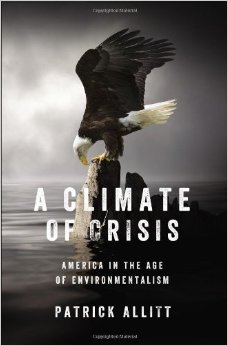The Pathetic Record of Environmentalist Pessimism
This conversation with Patrick Allitt on his latest book, A Climate of Crisis, provides a historical judgment on the environmentalist movement in postwar America. We see its causes, self-understanding, and the motives and beliefs driving its adherents. Allitt, unlike most in this area, does not come to propose or critique policies, but to note the benefits and consequences that have resulted from the particular brand of environmentalism that emerged in America. Curiously, Allitt notes, environmentalism received its initial energy from the immense capacity for wealth creation that America generated in the postwar environment. This freed us to notice the damage that had been inflicted on the environment by industry and our careless practices. One must be separate from nature in order to be sympathetic to it.
In this respect, concern for the environment was the offspring of a tremendous achievement. Yet, the same confidence that filled Americans with respect to growing the economy and generally getting on with it after the Depression and the War, soon departed when it came to the environment. Allitt notes that the apocalyptic rhetoric that frames our debates on environmental policy has been present from the beginning.
Allitt discusses those whom he terms pessimists as the true believers who have insisted at every turn that we face various ecological crises. However, despite a long record of failed predictions and impugned hypotheses, their rhetoric and overall framing of the issues still drives our approach to the environment. In short, why do the losers, with their morally superior demands that we change our way of life, still shape the debate, even when proved wrong by scientific evidence, or in the case of Paul Ehrlich, a really bad bet with Julian Simon? Less noted, but highlighted by Allitt, is the case made by the optimists who have generally insisted that markets, wealth, and increased technological sophistication will enable us to surmount our ecological troubles. They have been right far more often than their pessimist opponents.
We close our discussion with the central issue of the day: global warming. Here, too, Allitt notes that we have a problem, but he looks to the past record to conclude that science and markets will ultimately make this issue manageable by a mediated solution versus the rather dramatic demands for economic transformation still issued in order to, you guessed it, save the planet.


